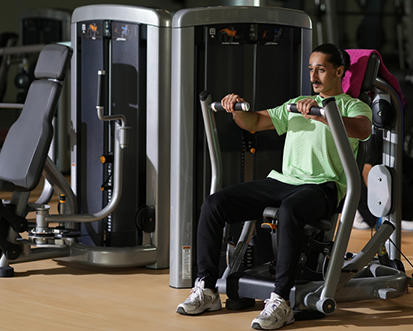Here are some great ways of reducing stress as recommended by the United Kingdom’s NHS:
Be active: Exercise won’t make your stress disappear, but it can reduce some of the emotional intensity that you’re feeling, clearing your thoughts and letting you deal with your problems more calmly.
Take control: If you think you cannot do anything about your problem, your stress can get worse. That feeling of loss of control is one of the main causes of stress and lack of wellbeing. The act of taking control is in itself empowering, and it’s a crucial part of finding a solution that satisfies you and not someone else.
Connect with people: A good support network of colleagues, friends and family can ease your work troubles and help you see things in a different way. The activities we do with friends can help us relax and relieve stress. Talking things through with a friend may also help you find solutions to your problems.
Have some “me time”: Many of us work long hours, meaning we often don’t spend enough time doing things we really enjoy. It’s important to take some time for socialising, relaxation or exercise. You could try setting aside a couple of nights a week for some quality “me time” away from work.
Challenge yourself: Setting yourself goals and challenges, whether at work or outside, such as learning a new language or a new sport, can help build confidence. This may help you deal with stress. It can also make you want to do things and be active.
Avoid unhealthy habits: Don’t rely on smoking and caffeine as your ways of coping. They might provide temporary relief, but in the long term, these crutches won’t solve your problems. They’ll just create new ones. It’s best to tackle the cause of your stress.
Help other people: Evidence shows that people who help others, through activities such as volunteering or community work, often become more resilient. If you don’t have time to volunteer, try to do someone a favour every day. It can be something as small as helping someone cross the road or going on a coffee run for colleagues.
Work smarter, not harder: Working smarter means prioritising your work, concentrating on the tasks that’ll make a real difference. Leave the least important tasks to last. Accept that you will not have time for everything.
Try to be positive: Look for the positives in life, and things for which you’re grateful. Try writing down 3 things that went well, or for which you’re grateful, at the end of every day.
Accept the things you can’t change: Changing a difficult situation isn’t always possible. Try to concentrate on the things you do have control over.
Your Thrive journey starts by visiting the Thrive team at AlWaha in the Zahid Business Park during regular working hours; stop by and say Hello.

